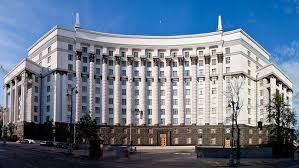
Ukraine’s Cabinet of Ministers is considering raising electricity tariffs in the wake of Russia’s new attacks on the energy sector, Energy Minister Herman Galushchenko said in an interview with Bloomberg.
“Depending on the situation in July and August, we will ask people to save as much as possible. The Russians will not be able to cause a repeat of the blackouts of 2022 and 2023. Even in the event of huge losses, we will have a basic generation that will cover 30% to 50% of our needs,” the minister said.
At the same time, Galushchenko did not rule out an increase in electricity tariffs for households and said that the government is exploring various ways to finance the repair of its energy assets.
“Today the situation is even more complicated than last year, as we have lost a lot of hydropower production and are forced to carry out scheduled repairs of nuclear power units,” he said.
The minister emphasized that Russia’s bombing of Ukrainian energy facilities in recent weeks was more extensive and better planned than the attacks of the previous two years, disabling generating capacity and limiting electricity supplies. As a result, restoring equipment and protecting the power grid have become key priorities for the government, although it is struggling to assess the extent of the damage.
“The destruction was extensive – in power generation and transmission. The situation is complicated. We still do not understand the extent of the damage, as many facilities are still in ruins and we cannot get to them,” explained Galushchenko.
In addition, in the spring of 2024, thermal and hydroelectric power plants became the main targets of Russian strikes. These attacks threaten not only electricity losses but also environmental disasters, Galushchenko said.
“Attacks on hydroelectric power plants are terrorist acts and war crimes, as they affect not only energy production but also the operation of dams on rivers,” the minister said.
Russia’s goal is to destroy Ukraine’s economy, Galushchenko said, adding that more damage to the power system would make it harder to overcome this summer’s consumption peaks.
“We will definitely communicate with people. Everyone wants to live comfortably, but we have to take into account the fact that there are restrictions now,” the minister concluded.
Bloomberg, CABINET OF MINISTERS OF UKRAINE, ELECTRICITY, Herman Galushchenko, tariff increase